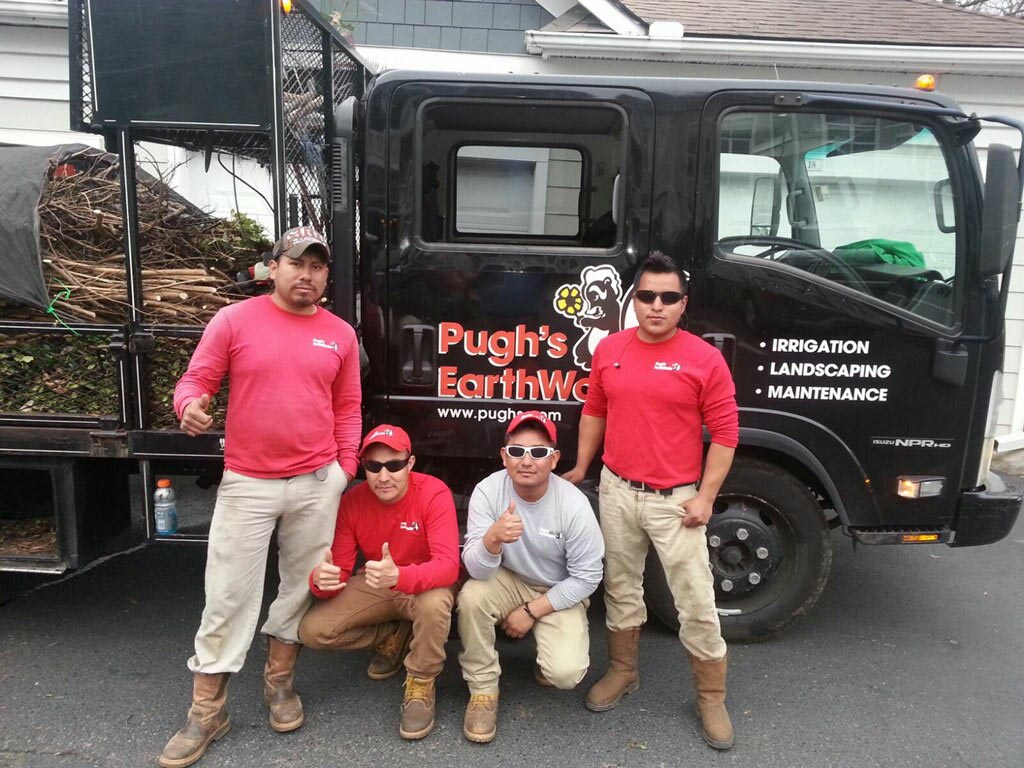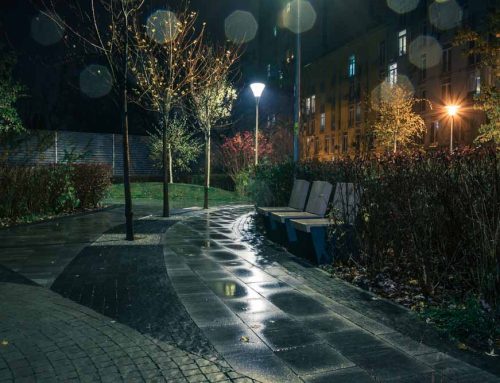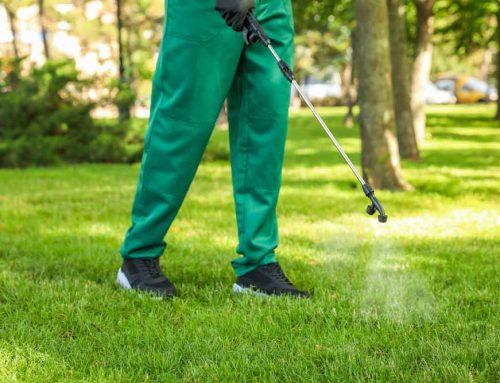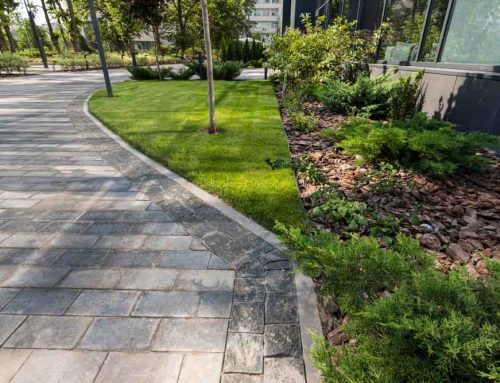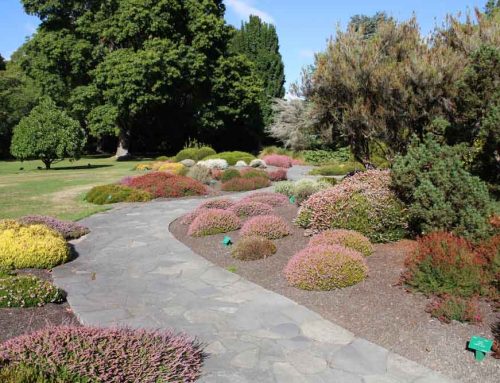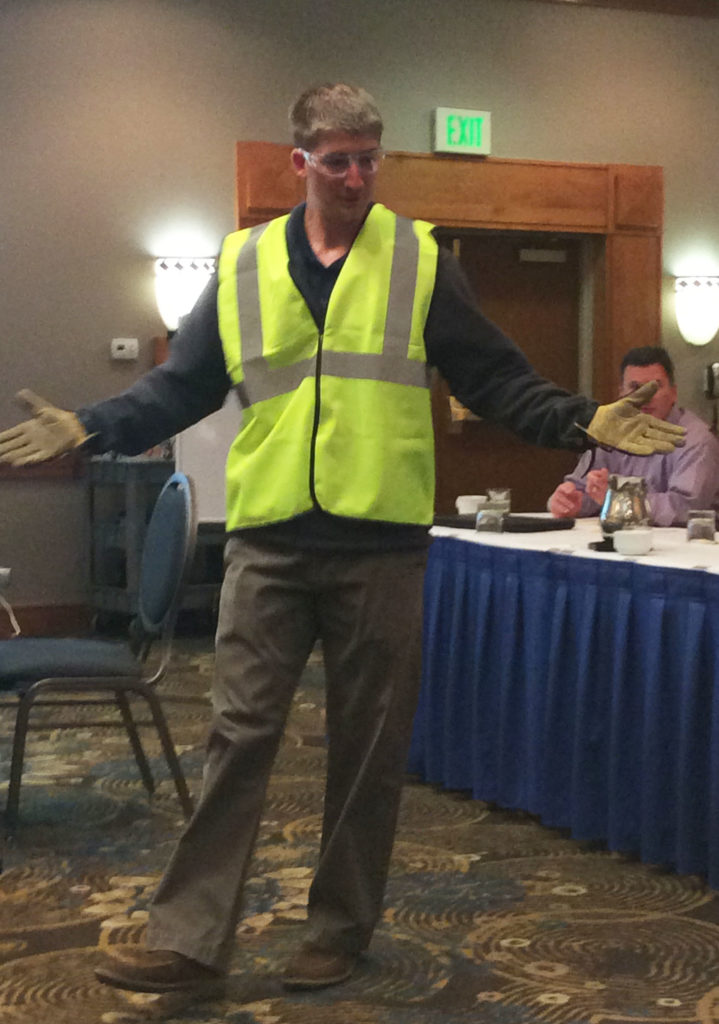 Zack Berggren is the safety engineer for Pugh’s Earthworks. Safety of employees is of utmost importance and Zack has achieved a near perfect safety record. Above is Zack showing off some of the safety equipment that field technicians wear. Some of the guidelines followed are listed below.
Zack Berggren is the safety engineer for Pugh’s Earthworks. Safety of employees is of utmost importance and Zack has achieved a near perfect safety record. Above is Zack showing off some of the safety equipment that field technicians wear. Some of the guidelines followed are listed below.
General safety precautions for landscape workers in the field.
Train workers to ensure that they understand all of the job hazards and can handle tools and equipment safely.
Report unsafe working conditions or equipment to your supervisor.
Identify and destroy harmful or noxious plants such as poison ivy.
Protect against insects with insect repellents or protective clothing when needed.
Use caution in areas where you may encounter wild animals or unfriendly domestic ones.
Rest periodically during strenuous jobs such as digging or sawing: work-rest schedules vary according to temperature conditions, how strenuous the work is, and how acclimatized (“used to”) the worker is to the workload.
Make sure emergency telephone numbers are clearly posted or readily available.
Know the location of the first aid kit and how to use the contents.
Do not touch stray or dead animals. Contact an animal control agency for removal.
Wear respiratory protection if you must clean up waste, leaves or dust that may contain mouse droppings. Mice can carry the hantavirus which can become airborne with dust and may be inhaled by workers.
Be aware of expected weather conditions for the day, and plan accordingly. Have plans about where to go if severe weather hits. Know where to seek shelter in a thunderstorm (fully enclosed metal vehicles, with windows up or a building (not sheds).
Learn proper hand washing techniques. Wash your hands thoroughly after before eating, using the washroom, or changing tasks (using different tools and/or different locations).
Personal Protective Equipment Tips:
Wear high-cut CSA certified safety footwear with toe caps and reinforced, non-skid soles.
Use approved (e.g. CSA Z94.1) head protection when working under branches or where there may be falling objects.
Use appropriate eye protection (safety glasses or goggles) whenever dust or debris may get into your eyes (eg. when power tilling, breaking up rocks or concrete) or when using strong cleaning agents, spraying or dusting.
Wear sturdy, well-fitting gloves with grip.
Use vibration-absorbing gloves while operating vibrating equipment.
Wear suitable chemical-resistant rubber or plastic gloves when handling fertilizers and pesticides and other chemicals.
Wear hearing protection devices (e.g., ear muffs, ear plugs) that provide appropriate protection from noise produced by equipment being used.
Protect yourself from the sun – use sunscreen with a sun protection factor (SPF) of 15 or higher and re-apply sunscreen as required throughout the day. Consider wearing lightweight long pants (v.s. shorts) and long-sleeved shirts.
Wear a brimmed hat and comfortable clothing that provides sun protection.
Wear sunglasses that filter out at least 90% of the sun’s ultraviolet rays.
Take regular rest breaks inside. Frequent short pauses are better than longer breaks further apart.
Do not wear loose-fitting or torn clothing.

